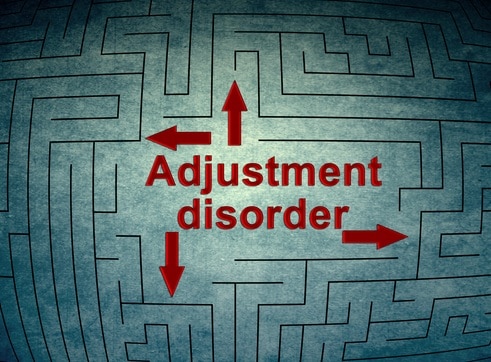
Introduction
Adjustment disorder is a behavioural or emotional response to a stressful or life-changing situation. The response is an unhealthy reaction to an event or change within three months of its onset and typically lasts less than 6 months.
Stressors may vary in meaning for children versus adults. Likewise, the severity of the stressor does not necessarily predict the subjective level of experienced distress. Stressful events can include family difficulties, discoveries about sexuality, financial issues, unforeseen life events, marital crises, medical diagnoses, failures, losses (apart from persistent complex bereavement, as it is a separate condition) etc.
Symptoms and signs
Psychiatrists and psychologists use the DSM-5 guidelines to diagnose adjustment disorder. According to this guideline, its symptoms appear within three months of the commencement of an identifiable stressor.
The stressors may be separate occasions or continuous stressful situations. Usually, stressful circumstances comprise disasters, catastrophes or emergencies, terminations of close relationships, professional losses or let-downs.
Typical symptoms of adjustment disorder include the following:
- Feeling anxious and worried
- Feeling sad
- Feeling angry, acting disruptively
- Problem sleeping
- Concentration difficulties
- Other characteristic signs such as – damaged self-esteem, feeling trapped, hopeless, or isolated from others
Common manifestations in children and adolescents include
- Low or short-tempered mood
- Disturbed sleep
- Decreased performance in school
According to the DSM-5, the subtypes of the adjustment disorder
- With anxious or depressed mood,
- With the disturbance of conduct,
- With mixed disturbance of conduct and emotions,
- Unspecified
The condition doesn’t have very specific feature, but people may want to visit a doctor if they experience fatigue, indigestion, sleep problems, pains, and aches.
Adjustment disorder substantially impairs professional, social or other areas of daily functioning.
Predisposition
There is a possibility that an economic and cultural background of an individual impacts the emotional or behavioural response, particularly coping skills, in adjustment disorder. Undoubtedly, social skills, IQ and genetics contribute hugely to the disorder.
Clinical research and practice suggest that early childhood traumas are a potent predisposition factor for adjustment disorder in later life. Children exposed to trauma in early life may develop immature defence mechanisms. In their later life, they may have bigger trouble coping with stressful events, thus inclining to adjustment disorder.
Statistics show that single women are overrepresented in those diagnosed with adjustment disorder. Besides that, adjustment disorder is one of the most prevalent psychiatric conditions in patients with surgical problems.
Adjustment Disorder versus Depression or Anxiety
According to DSM-5, it is essential not to confuse adjustment disorder with another mental illness or with an aggravation of a pre-existing mental condition. How does a mental healthcare provider identify the particular signs of this condition without misjudging it for depression or anxiety?
Unlike Generalised Anxiety Disorder (GAD) or Major Depressive Disorder (MDD), adjustment disorder with anxiety or with depressed mood requires the presence of an identifiable stressor, and it occurs within three months of the onset of that stressor.
However, adjustment disorder may develop into a major mental illness, and substance use disorders often co-occur. Moreover, some people experience adjustment disorders in the context of a borderline or other personality disorder.
DSM-5 suggests that symptoms of adjustment disorder should resolve within half a year. Otherwise, another diagnosis should be thought out.
Treatment
There is no one specific therapy that is most effective in the management of adjustment disorder. The treatment must be personalised to the patient’s symptoms and history.
Typically, psychologists and psychiatrists treat adjustment disorder by means of supportive interventions. Psychiatric medication treatment (psychopharmacological) and psychological treatment (psychotherapeutic/talk therapy), and external interventions aim to decrease or eliminate the stressor.
The combination of psychiatric medication and psychotherapy (talk therapy) may help enhance coping by controlling symptoms, such as dysphoria (feeling very unhappy, uneasy, or dissatisfied), anxiety and insomnia.
In psychotherapy, the principal task of the psychologist is to help people manage the excesses of their reaction and improve tolerance to the stressor since eliminating a stressor often is not possible.
The pharmacological and psychotherapeutic interventions for adjustment disorder aim to lessen the effect of the stressor, decrease the associated psychiatric symptoms, and improve the individual’s ability to deal with stressors.

Diana Tutschek
Clinical Psychologist, Marriage & Family Counselor
(British Board)
Call +971 4 457 4240
